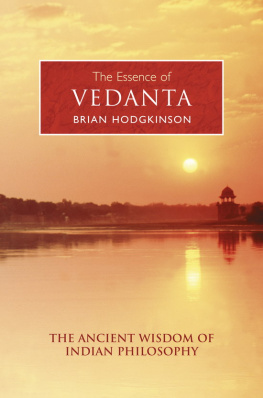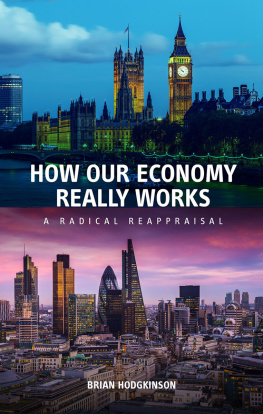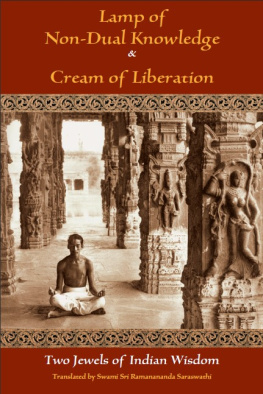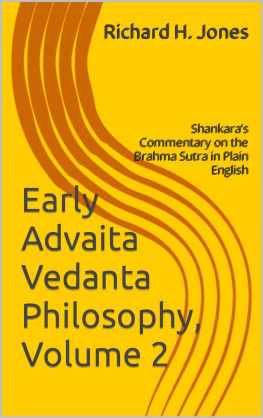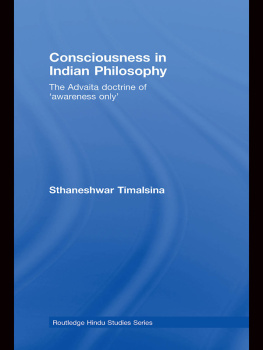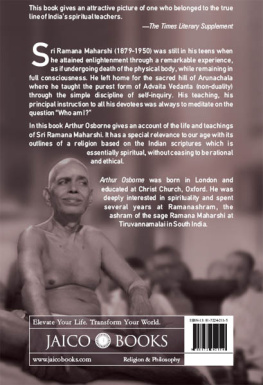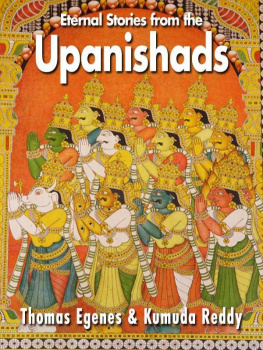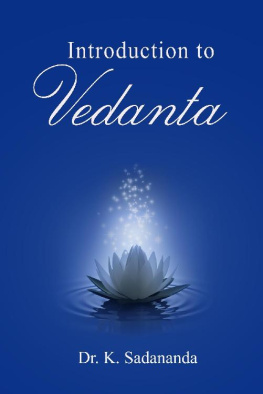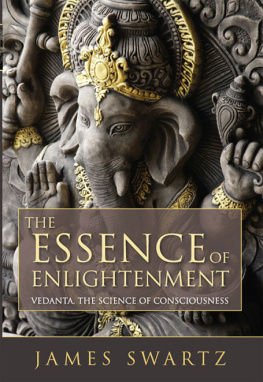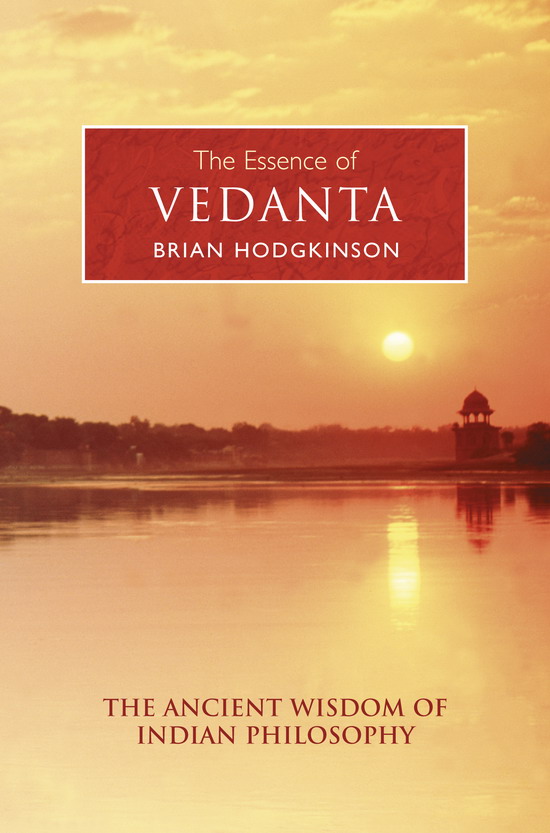

This edition published in 2011 by Arcturus Publishing Limited
26/27 Bickels Yard,
151-153 Bermondsey Street
London SE1 3HA
Copyright 2006, Arcturus Publishing Limited
All rights reserved. No part of this publication may be reproduced, stored in a retrieval system, or transmitted, in any form or by any means, electronic, mechanical, photocopying, recording or otherwise, without prior written permission in accordance with the provisions of the Copyright Act 1956 (as amended). Any person or persons who do any unauthorised act in relation to this publication may be liable to criminal prosecution and civil claims for damages.
ISBN-13: 978-1-84858-409-9
Cover illustration: Sunset on the Yamuna River, Agra, India (courtesy Corbis).
To my wife, Catherine
Contents
Many people over many years have contributed to the making of this book, but I wish to thank, especially, Michael Shepherd for several valuable comments, Dr Stephen Thompson for the benefit of his extensive knowledge of Sanskrit, Tessa Rose of Arcturus for her constant support, Matthew Cory for some stimulating editing, my son David and daughter-in-law Catherine for advice in several areas, and my wife for her unfailing patience. None of the above are responsible for its shortcomings.
Every effort has been made to contact the copyright holders of material quoted in this book and seek their permission for its inclusion. We thank the following for their kindness in granting permissions: Advaita Ashrama; Cambridge University Press; Munshiram Manoharlal; Oxford University Press, India; Oxford University Press, New York; Shanti Sadan; Sri Ramanasramam; The Study Society; Watkins Books.
Any oversights are sincerely regretted, and if drawn to the attention of the publisher will be rectified at the earliest opportunity.
When I was about seventeen I heard a radio talk by Peter Strawson, an eminent Oxford philosopher, about free will. It was fascinating. He discussed questions such as whether we experience anything called freedom of the will, when we deliberately raise an arm. My interest in such matters has never faltered, but the direction of my investigations into them has undergone a sea change. After three years enjoying the delights and trials of studying at Oxford, at a time when it was regarded as the world centre of modern analytical or linguistic philosophy, and another five years teaching the subject to bemused undergraduates at Sussex University, by the greatest good fortune I came across a wholly different approach to the subject in the form of Vedanta.
Philosophy did not cease for me to be an intellectual enquiry into the fundamental aspects of human existence, but it became, in addition, a matter of learning how to live in accordance with the principles that Vedanta revealed. Above all, it showed how my view of myself had been mistaken. No longer could I believe that in my innermost self I was a separate individual. Life continued much as before, in so far as I had a career, got married, had a son, and enjoyed the benefits of living in England, where individual freedom happily remains paramount. (There was no paradox about individualism in this.) But my view of the world was slowly transformed the more I learnt of Vedanta. Other people were no longer separated from me, as beings with an existence exclusively their own. At heart we were one, even if from day to day we seemed to become occasionally angry, envious, bored or shy with one another. However much these feelings intervened, there was always recourse to the one sure principle of Vedanta, that all are Brahman, the universal spirit.
Similarly, my relationship with the natural world lost a sense of alienation, prevalent since adolescence. The beauty of natural things animals, trees, flowers, the sea and mountains had always been acutely felt, but it had been something I wanted in vain to grasp for myself. Like Wordsworth, I believed that 'there hath past away a glory from the earth'. Henceforth, that beauty became an aspect of the beauty of oneself, not the self of me as an individual, but the self that shines in the hearts of all.
Vedanta hinges upon this truly remarkable idea, that everything, without any exception whatsoever, is the one spirit. Indeed, if one could fully appreciate and remember this from moment to moment, so that it became the way in which one lived, rather than a thought, there would be little need to learn more of the whole vast system of ideas that Vedanta has become over millennia. For all the rest is ultimately no more than an introduction to, or preparation for, the recognition of unity, the oneness of spirit.
Vedanta is a philosophical system associated especially with India. Its greatest teachers, its key texts and by far the majority of its students or followers have all been Indian. To approach it, however, as a specifically Indian system, would be entirely misleading. For, above all, Vedanta is universal. What else could it be, when its central questions are those of all mankind? What am I? What is the universe? What is my relationship to it? Most thinking men and women throughout history have, at some time in their lives, asked perhaps felt such questions, and every nation has brought forth some who have been driven by similar enquiries into deep realms of thought or emotion.
One might argue that even the word 'philosophy' is inappropriate in relation to Vedanta, for philosophy means the love of wisdom, and Vedanta perhaps might be better described as wisdom itself. For, as Socrates claimed in the Symposium, love is really no more than an intermediary, a halfway house on the way to the union of the lover with the beloved. To claim, however, an identity between Vedanta and wisdom is a dangerous idea. As a system that can be studied from the words of master teachers and from ancient texts, it is no more than a guide that may point in the direction of the truth. Wisdom, on the other hand, is practical. The wise live what they know. They practise it in their lives. No words, spoken or written, can do this on behalf of anyone. Hence Vedanta as a system is a kind of manual of wisdom, not wisdom itself.
The analogy can be pursued further. If you want to learn to drive, you go to a driving school. If the school just sold you a driving manual, you would feel seriously short-changed. Likewise, the practical nature of Vedanta as wisdom can perhaps only be learnt from a guru, a teacher who has himself acquired wisdom from study and practice at the feet of his own master. What use then is a manual? Why read a book on driving or a book on Vedanta? There are several answers to this question. Trivially, one may simply want to know something of how other people drive or live their lives. More importantly, the manual may supplement or reinforce the knowledge derived from a teacher. Or it may act as a substitute, albeit a poor one, when no teacher is available. One could, if it were absolutely necessary, learn to drive a car just from a manual. Since in the Western world there are few genuine teachers of Vedanta, even a book on Vedanta may go some way towards enabling a willing student to practise its principles, if only by pointing him or her towards texts such as the Upanishads.
What then is the vital difference between what might be called theory and practice? Let us take another specific principle of Vedanta the astonishing statement 'I do nothing at all.' Even in theory this may sound strange. What it means is that everything is done by the body, senses and mind as instruments. The self I does nothing. It merely observes, for observation is not itself an act. What then can this mean in practice? One may accept the principle in theory, but still firmly believe that one is, in fact, walking or driving a car. When the wise walk or drive, however, they do so in the certain knowledge that everything is done, even an emergency stop, by mind, senses and body alone. They are not identified with the act. No verbal instruction could bring a student to such a point of wisdom, though it may prepare the way.
Next page
